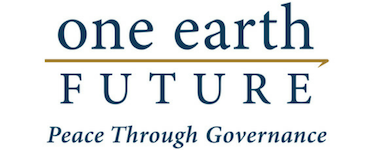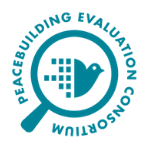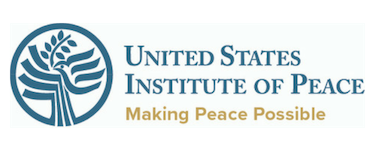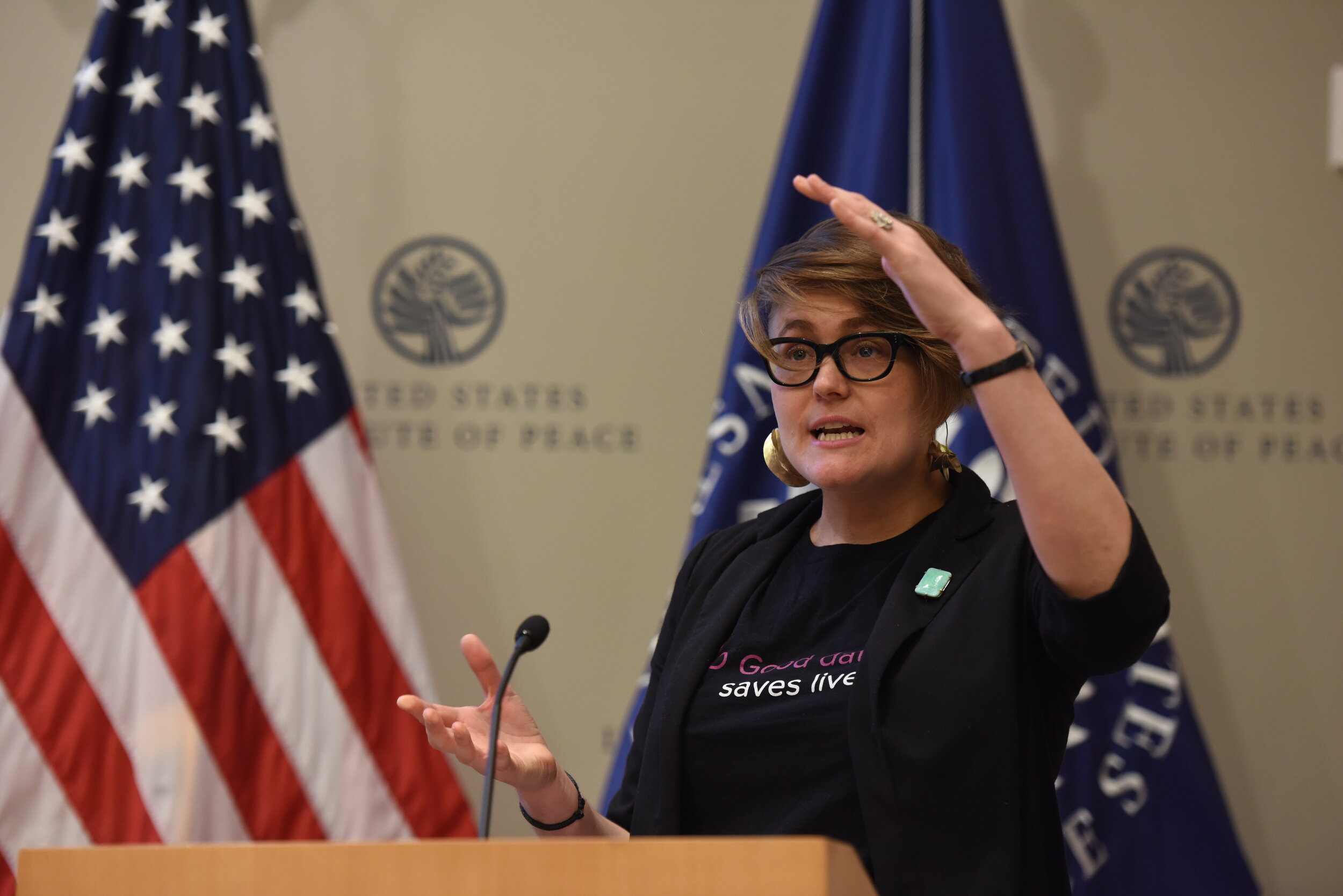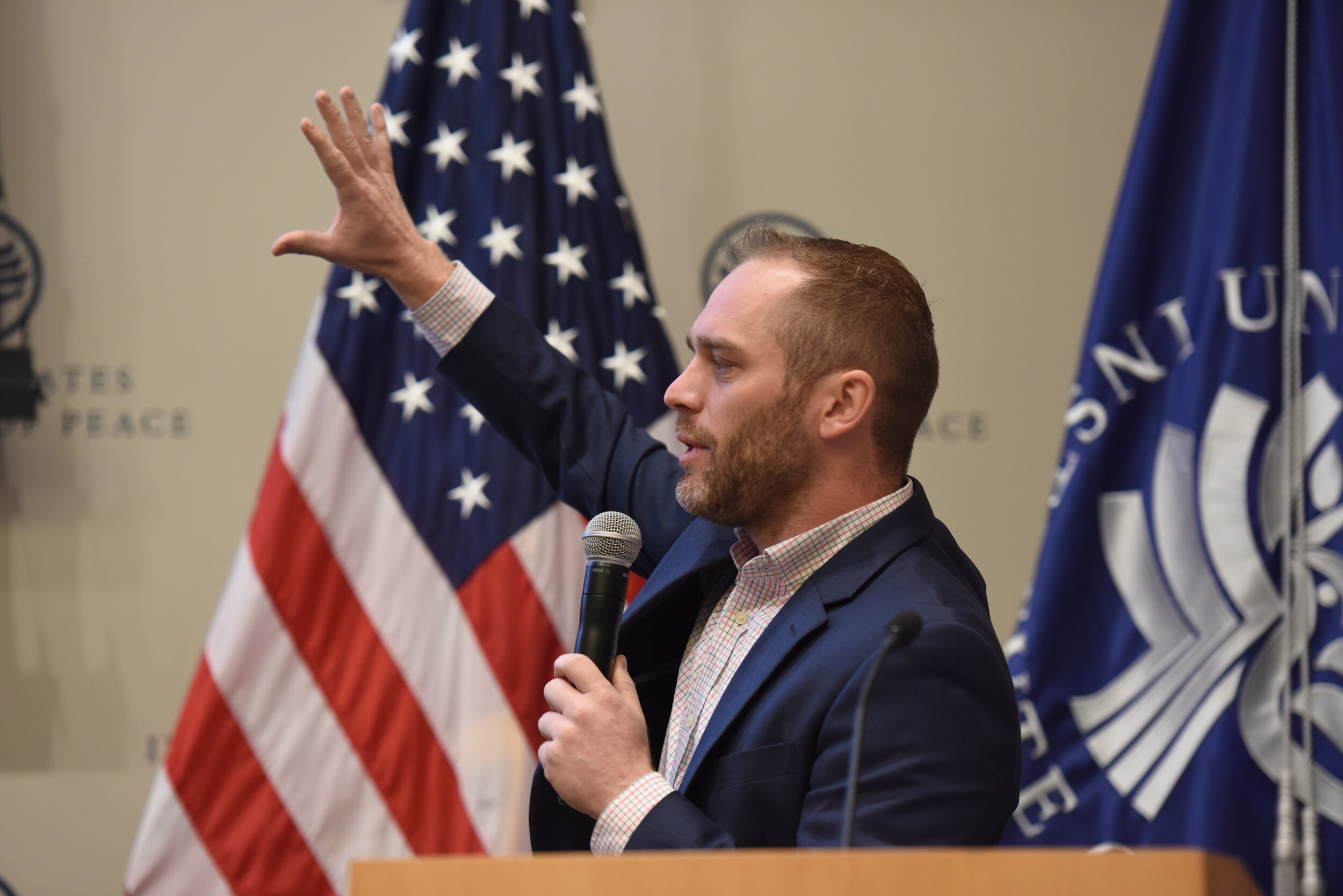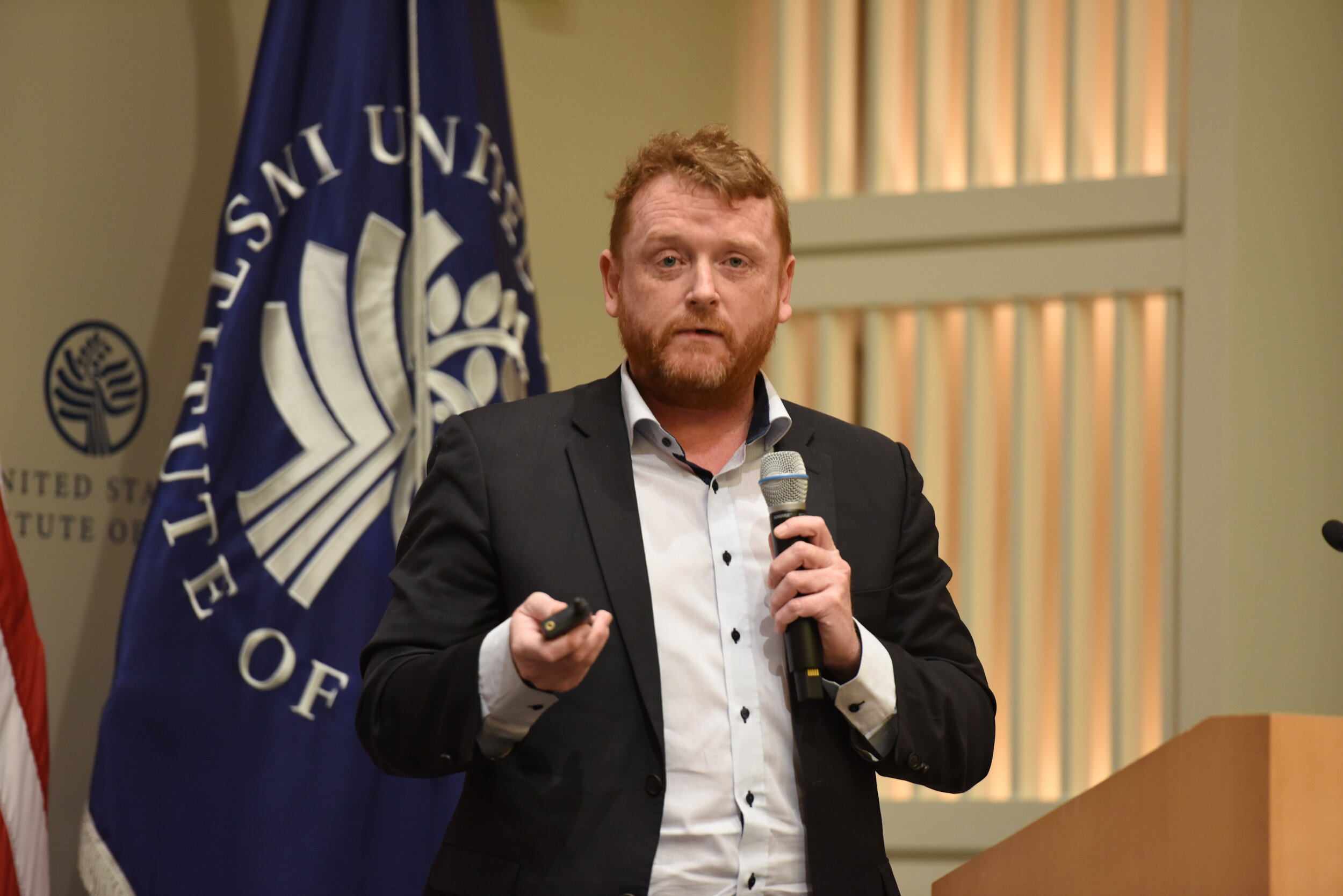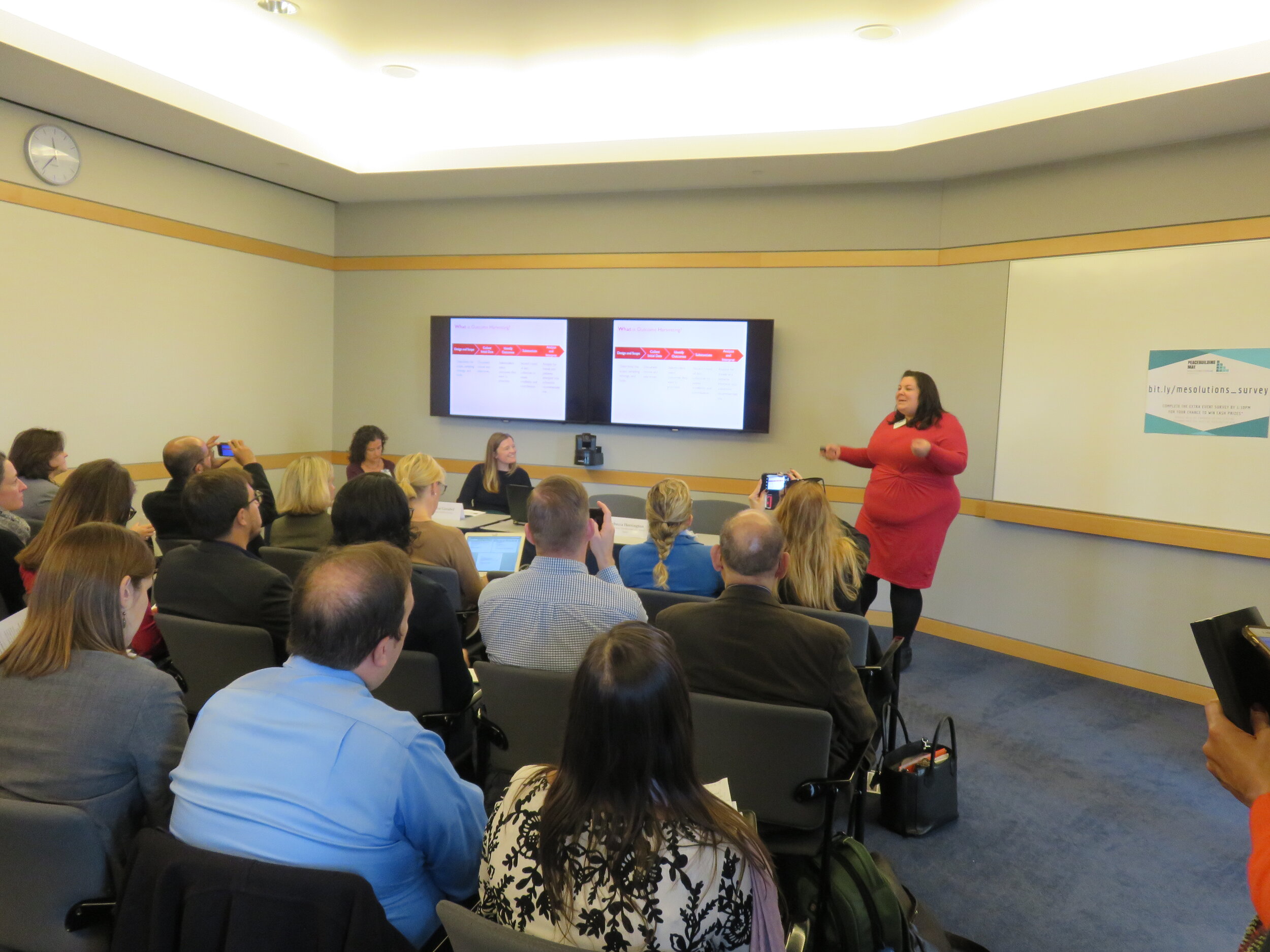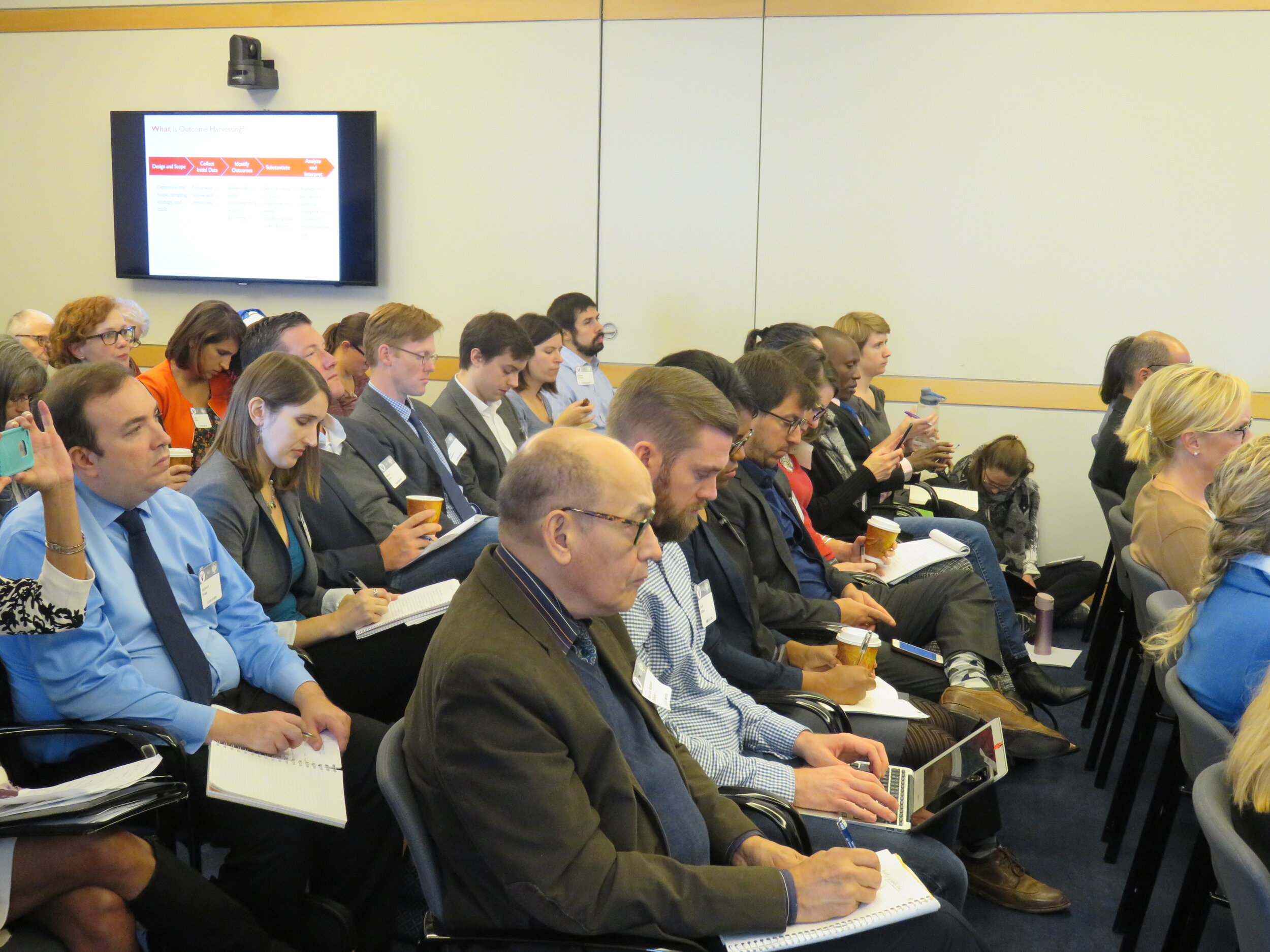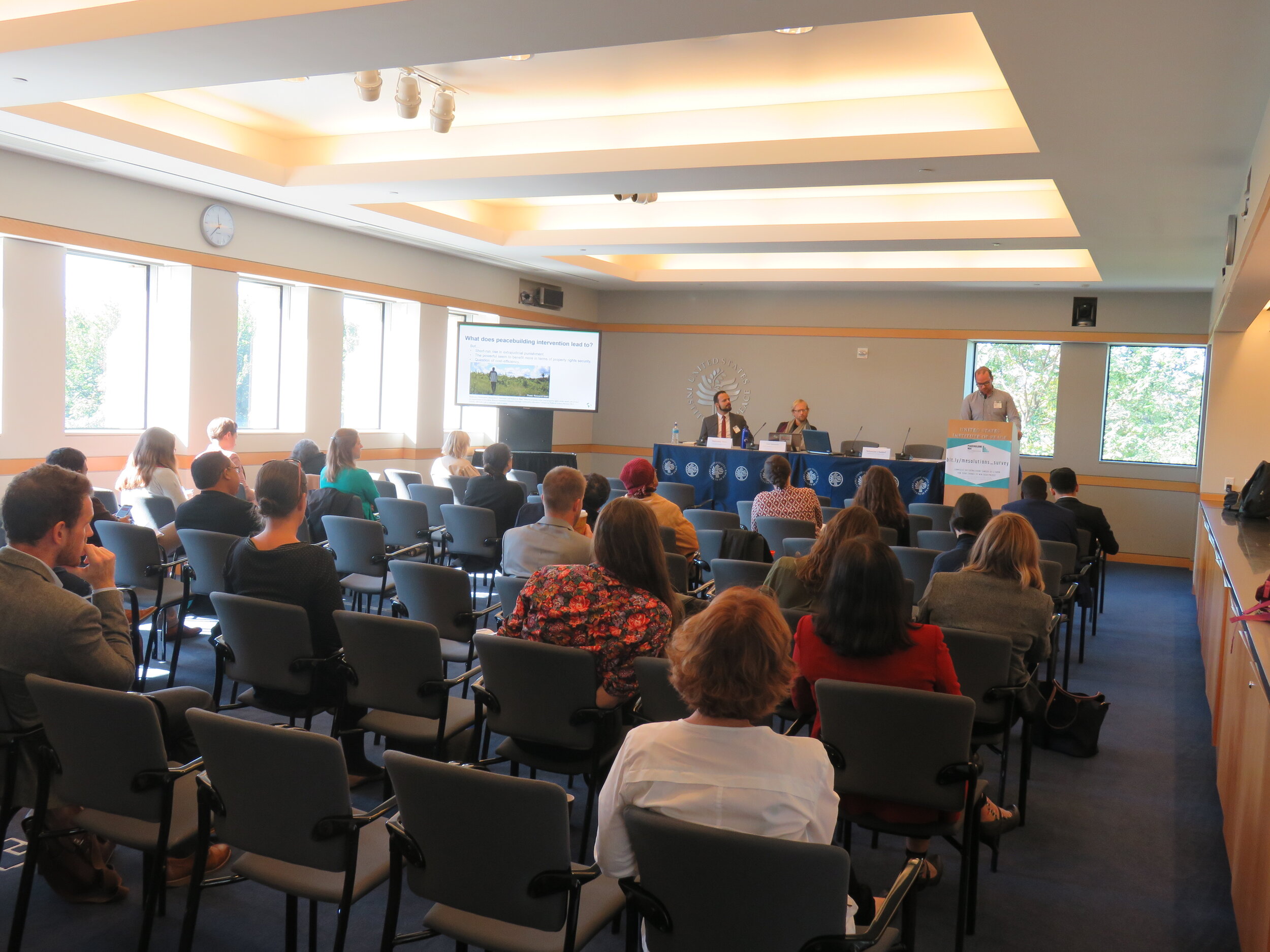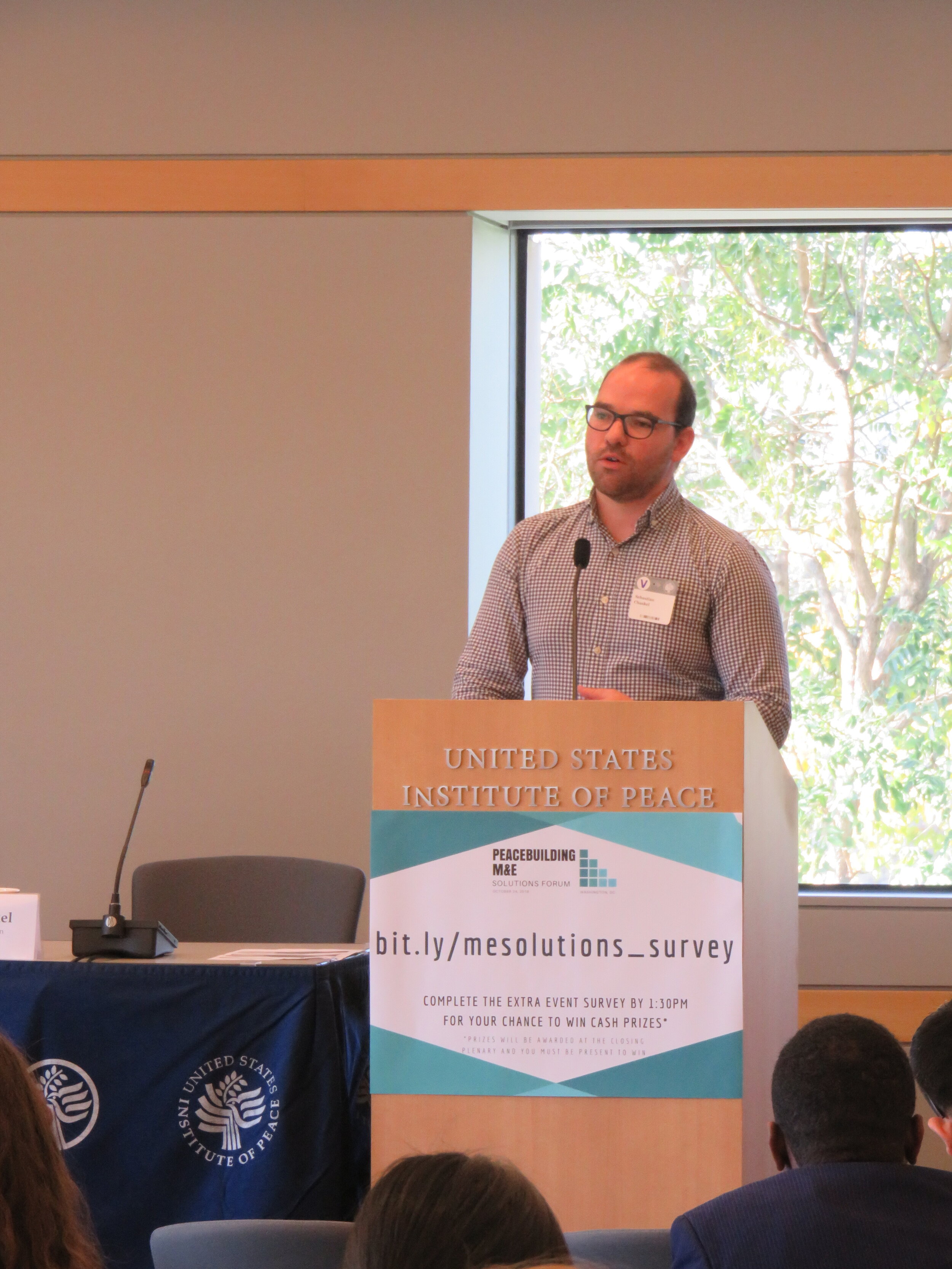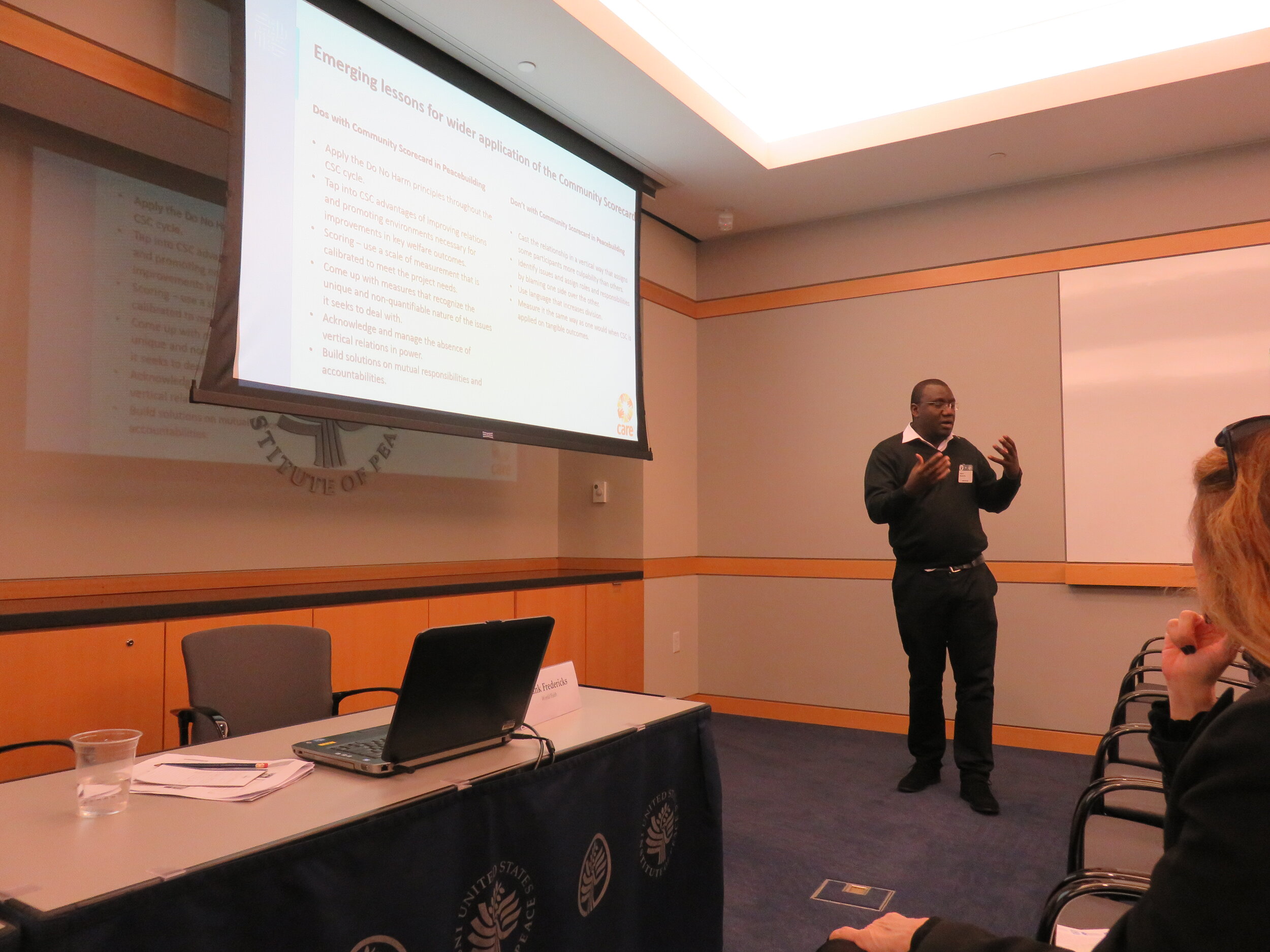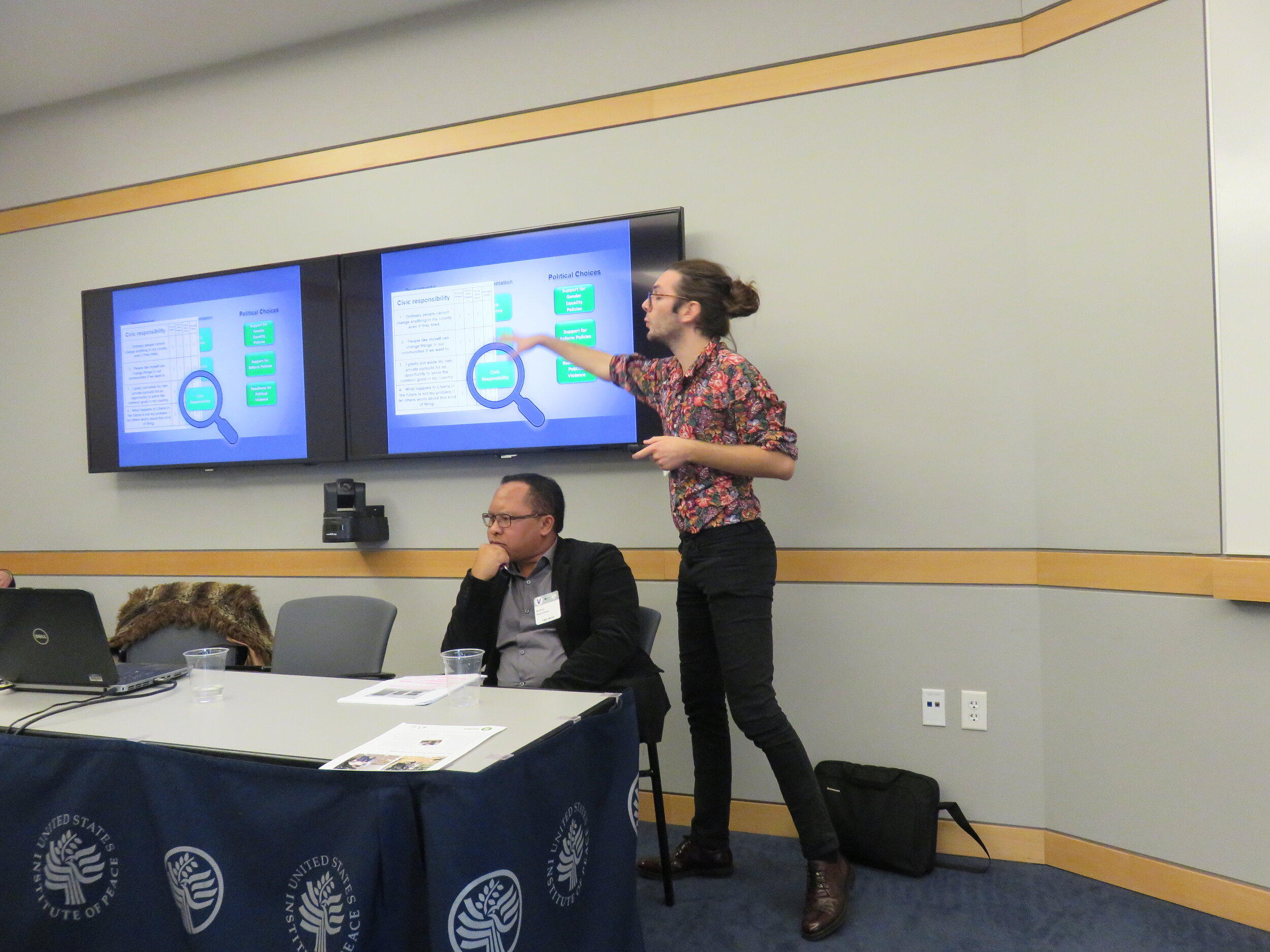Peacebuilding M&E Solutions Forum 2018
Location
The Peacebuilding Evaluation Consortium co-hosted it’s first Peacebuilding M&E Solutions Forum on Tuesday, 23 October 2018 with the United States Institute of Peace and One Earth Future Foundation.
It was held at the United States Institute for Peace.
Sponsors
Presentations
If you weren’t able to attend the event, or simply want to check back into your favorite presentations, please see below all of the publicly available presentations.
Plenary Session
Presentation 1.1 – Improving Research Design (Methodological approaches for evaluations before, during, and after a program is implemented) by Keith B. Ives – Causal Design and Jon Kurtz – Mercy Corps
Presentation 1.2 – Improving Data Analysis (Data-based Decision Making for Building and Sustaining Peace) by David Hammond – Institute of Economics and Peace
Presentation 1.3 – Improving Data Use (Making Research Useful and Used: Lessons from a Mixed-Method Evaluation in Somalia) by Andrew Blum -Kroc School, University of San Diego & Beza Tesfaye – Mercy Corps
Concurrent Session 2
Impact Evaluations & RCTs
Qualitative Research
Joint Action & Collective Impact
Presentation 2.1a – Seriously? RCTs Role in Peacebuilding by Sebastian Chaskel – Innovations for Poverty Action
Presentation 2.2a – Evaluating the impact mass and social media programming to alter public perceptions by Mufaddal Moiz – United States Institute of Peace
Presentation 2.3a – Randomized control trial evaluation of religious peacebuilding by Tarek Maassarani – Salam Institute for Peace and Justice
Presentation 2.1b – Measuring the Hard to Measure: Qualitative Rigor by Rebecca Herrington – Social Impact
Presentation 2.2b – Capturing Conversations : Guided Dialogue Observation by Rebecca Greubel – United States Institute of Peace
Presentation 2.3b – Sensemaking in Peacebuilding Evaluation by Nell Bolton – Catholic Relief Services & Maria Veronica Gottret – Catholic Relief Services
Presentation 2.1c - Designing Collective Impact for Peacebuilding by Frank Fredericks – World Faith
Presentation 2.2c - Collective Monitoring: Lessons from Central African Republic by Ruben Grangaard – United States Institute of Peace
Presentation 2.3c - Joint Community Action Plans for Peace-Building in Nigeria by Anne Brady – The Tony Blair Institute & Gilbert Muyumbu – CARE International UK
Concurrent Session 3
Participatory M&E
Adaptive Management & Evaluation
M&E Purpose and Quality Assurance
Presentation 3.1a - Feedback Loops in Inclusive and Participatory M&E by Saurav Upadhyay - American Friends Service Committee & Joan Marshall-Missiye - American Friends Service Committee
Presentation 3.2a - Everyday Peace Indicators by Belquis Ahmadi – United States Institute of Peace, Pamina Firchow - George Mason University, & Zach Tilton - Western Michigan University
Presentation 3.3a - PhotoVoice : Amplifying Youth Voices by Robin Nelson – Fhi360 & Loubna Rais – Fhi360, Morocco
Presentation 3.1b - Adaptive Learning: Outcome Harvesting an alternative to results-based programming? by Carlotta Fassiotti – Search for Common Ground
Presentation 3.2b - Lessons from Experience: Outcome Mapping in Conflict-Affected Contexts by Elizabeth Wright - Conflict Dynamics International
Presentation 3.3b - Developmental Evaluation: Youth and Community Resilience against VE by Peter Weinberger, PhD – Fhi360
Presentation 3.1c - Searching for Balance: From Agency Measurement to Program Specifics by Leslie Wingender – Mercy Corps
Presentation 3.2c - The Evolution of the Role of M&E in Peacebuilding Programming by Sasha Kishinchand - Polar Lights Prime LLC
Presentation 3.3c - Data quality assurance: Audio check in complex environments by Yuliya Dudaronak - ORB International
Concurrent Session 4
Evaluation & Data Use
Conflict Monitoring & Adaptive Management
Theory & Institutional Learning
Presentation 4.1a – Evaluation of Early Childhood development program in Rwanda: Research with Children under age 6 by Emmanuel Nkusi – Search for Common Ground, Rwanda
Presentation 4.2a – Promoting and Evaluating Joint Action for Reconciliation Between Indigenous and non-Indigenous Peoples in Saskatchewan, Canada by Rhett Sangster – Office of the Treaty Commissioner, Canada & Illoradanon Efimoff
Presentation 4.3a – Monitoring for Adaptive Programming: Data to Inform by Sarah McLaughlin – Department of State, Bureau of Conflict and Stabilization Operations (CSO)
Presentation 4.1b – Monitoring Conflict Systems – Lessons from Madagascar by Sedera Arnaud Rajoelison– Search for Common Ground, Madagascar
Presentation 4.2b – The SCORE Methodology Measuring the intangible and predicting peace by Alexander Guest – SeeD – Centre for Sustainable Peace and Democratic Development
Presentation 4.3b – Implementing the Most Significant Change Technique: Lessons Learned from Youth Programs in El Salvador by Annalis Mitcho – American Friends Service Committee
Presentation 4.1c – From M&E to Institutional Learning: Progress through University Partnerships (Case study in Kurdistan, Iraq) by Audrey Watne – New York University & Zeravan Sadeeq – University of Duhok, Iraq
Presentation 4.2c – Theory-based approaches for evaluative program monitoring by Jesse McConnell – Independent Consultant
Presentation 4.3c – Evaluating Across Contexts: Lessons from a Meta-Review Process by Michael Zanchelli – United States Institute of Peace & Nike Carstarphen – Alliance for Conflict Transformation (ACT)





